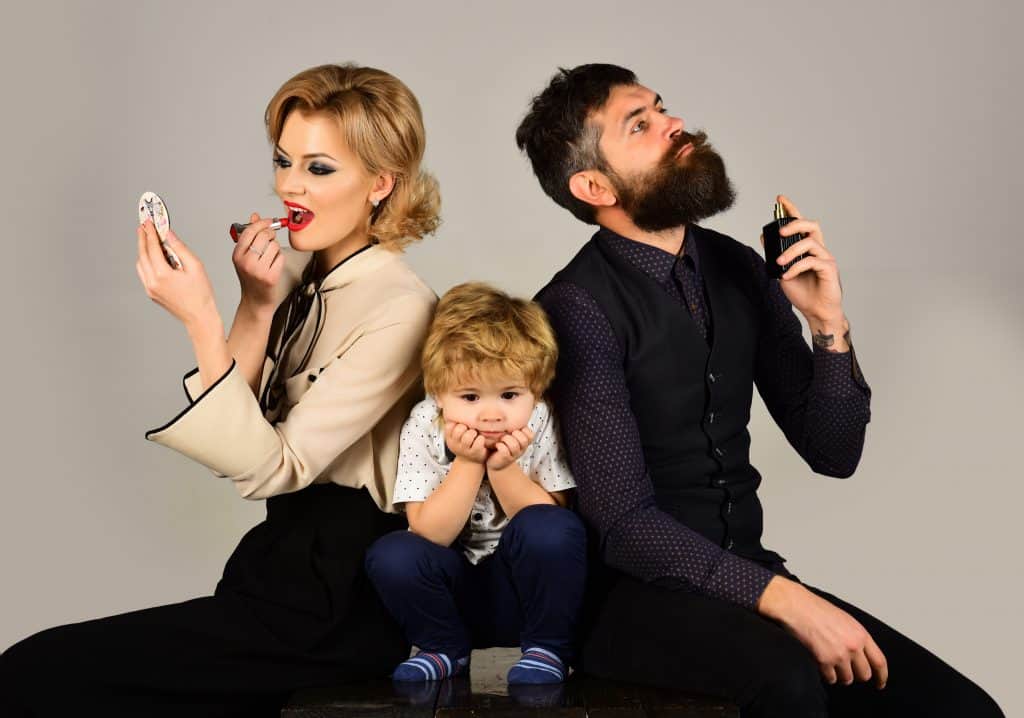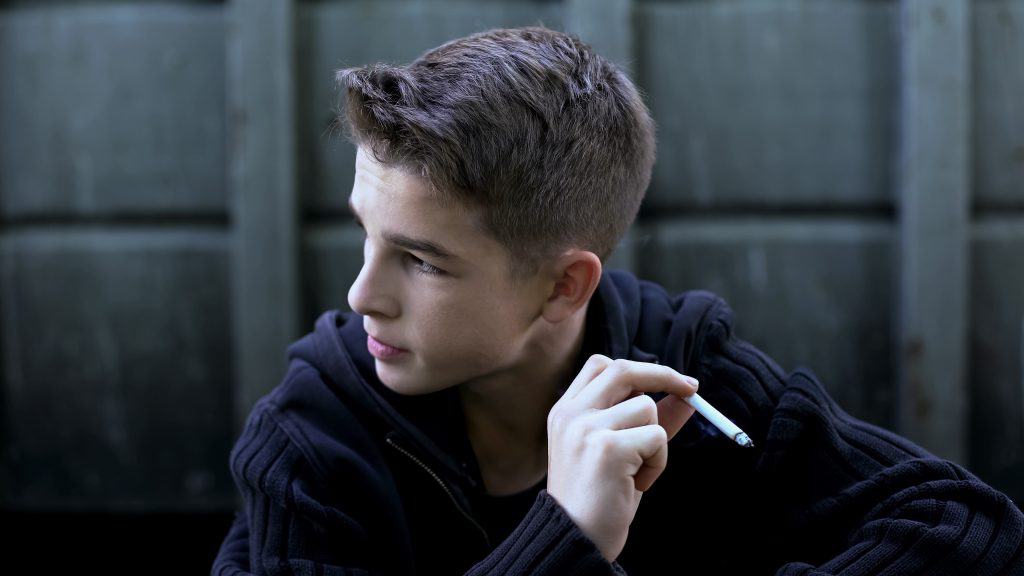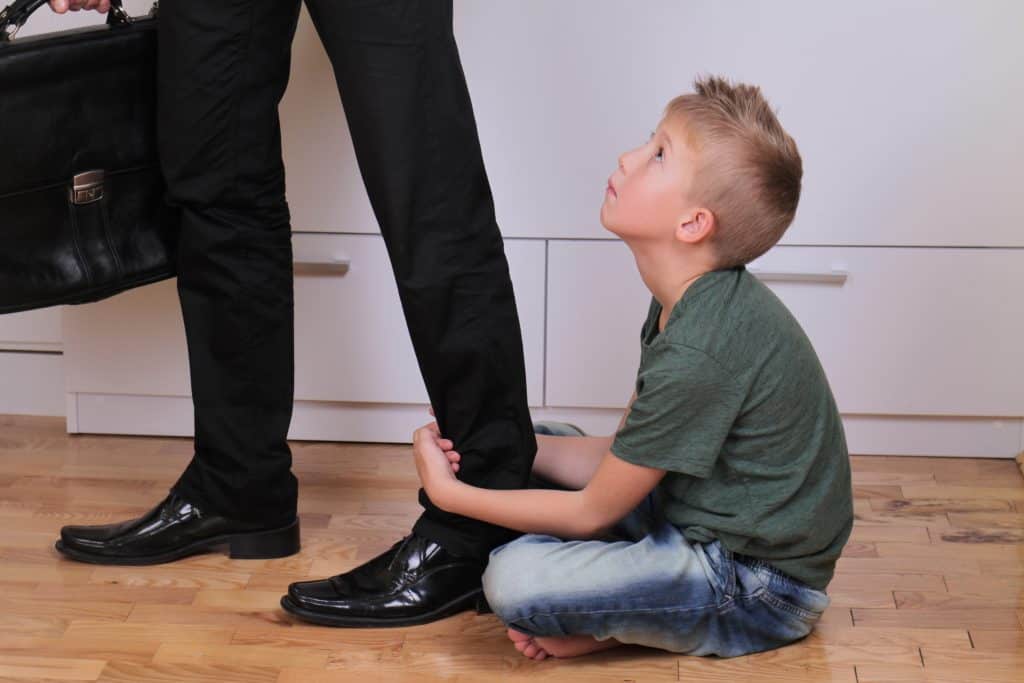I think we’re often unaware of the damage we can do with our actions and words.
Mistakes like this are common to all of us in communication, even the most thoughtful of us.
Isn’t it human to express our thoughts when they’re racing through our heads?
Mistakes like this are particularly devastating when that impulsive person is a mother or father.
Someone who talks to their child in this way, when a child is raised by toxic parents.
I wonder what a child should do when they’re in that situation?
It’s not easy to change fathers or mothers, just as it’s hard to break off friendships or change jobs.
When is a parent toxic?

The term “toxic parents” was coined by Susan Forward.
This North American psychologist is also the author of When Mothers Don’t Love.
For Forward, a toxic parent is someone who causes distress in their children.
However, the way toxic attitudes are treated and their causes are very different.
The harmful behavior itself can include manipulation, excessive demands, abuse and the like.
This begs the question: what goes on in the minds of toxic parents who raise their children in this way?
According to Susan Forward, the reasons are mainly personal experiences that lead to selfishness or narcissism.
Personal achievements and success are most important, and if you don’t reach your goal, frustration is vented on the child.
They are humiliated and their self-esteem is trampled.
What does a child suffer most from because of a toxic father or a toxic mother?

But what do you think are the most harmful toxic behaviors for a child?
Information like this is important if we are to identify the corresponding behaviors and do something about them.
Problem no. 1: the over-demanding parent

When a parent is intolerant of their child’s failure, they engage in toxic behavior and harmful conversations.
These parents are extremely demanding and perfectionist, which can drive the child to the brink of despair.
They keep reminding the child of his or her mistakes, which makes him or her feel even worse.
Basically, the mother or father transfers their own low self-esteem and feelings of inferiority to the child.
Problem no. 2: the born manipulator

Toxic parenting often manifests itself in manipulative behavior.
These parents seek out the child’s weaknesses and exploit them to achieve their goals.
The child then feels controlled, used as a means to an end, and deprived of the ability to make his or her own decisions.
In short, the parent makes the child believe that he or she cannot survive without the parent!
Problem no. 3: authoritarianism, intransigence and intolerance

Toxic parents are less tolerant and often raise their children in an authoritarian manner.
They force their children to behave in a certain way, without taking their feelings or needs into account.
As a result of this inflexibility, the child is not happy, because he or she does not feel understood, and receives neither affection nor love from his or her mother or father.
Problem no. 4: abuse

It gets really critical when toxic parents use physical violence to complement verbal abuse.
Then, inappropriate behavior, insults and beatings, which greatly damage the child’s security and self-esteem, reinforce each other.
Problem 5: Excessive criticism

Parents who raise children in a toxic way not only demand an incredible amount from the child, but also treat them too critically.
They rarely praise their child.
No matter how well he or she may do something, their toxic parents see only the negative, what needs to be corrected or done better.
Of course, they don’t take into account their child’s age, abilities or interests.
This attitude leads the child to become defensive, and to learn that there’s only one way in the world for him to behave.
Problem No. 6: Lack of love

If there’s one thing every child needs, it’s love and affection from those closest to them.
Children need to feel love, but they also need to be able to show it.
Relationships with parents and other family members have a decisive influence on a child’s development.
We mustn’t forget that a child who doesn’t feel loved by his parents becomes a sad and insensitive child.
Problem no. 7: children’s feelings of guilt

Toxic parents make their children feel guilty by venting all their frustration on them.
Every failure of the parent is passed on to the child, who becomes more irritated and insecure by the day.
Our parents sow mental and emotional seeds in us, and these seeds grow with us.
In some families, these are seeds of love, respect and independence.
But in many others, we find seeds of fear, obligation or guilt.
Toxic parents can be identified as uncommunicative, over-protective and wanting the child to live the life they didn’t or couldn’t achieve.
As a result, they will rarely accept the child’s desires and aspirations that don’t match their own.
The language is that of selfish parents trying to control every little detail of their child’s life.
In short, people who get nothing but hatred from their child for it, while they struggle with serious problems of self-esteem, responsibility and self-confidence.

